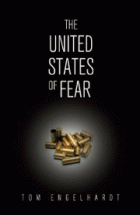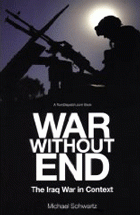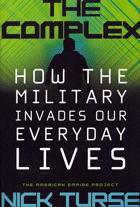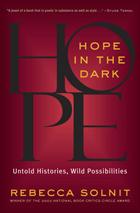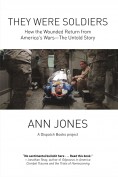In June, Austin “Scott” Miller, the special-ops general chosen to be the 17th U.S. commander in Afghanistan, appeared before the Senate Armed Services Committee. Like so many of the generals who had preceded him, he suggested that he saw evidence of “progress” in the Afghan war, even if he refused to “guarantee you a timeline or an end date.” Smart move, general!
As it happens, just over a week ago, he got a dose, up close and personal, of what the Afghan version of “progress” really means. He was visiting key American allies in the southern province of Kandahar when the “insider” attack of all insider attacks occurred. In the sort of event that’s been going on since at least 2010, an ostensible ally, in this case a local member of the Afghan security forces who had evidently joined the Taliban, turned his gun on Kandahar’s chief of police (a crucial powerbroker in the region), the local intelligence chief, and the provincial governor, killing the first two and wounding the third. In the process, he ensured that, with local leadership literally down the tubes, elections in Kandahar would be postponed for at least a week. Three Americans, including a brigadier general, were also wounded in the attack. (In 2014, an American major general was killed in just such an insider strike.) In one of the rarest acts for an American commander in memory, General Miller reportedly drew his sidearm as the bullets began to fly, but was himself untouched. Still, it was a striking reminder that, 17 years after the U.S. invaded that country, the Taliban are again riding high and represent the only forces making “progress” or “turning corners” in that country.
In a conflict with no end in sight that is now not only the longest in American history but more than four times as long as World War II, the “finest fighting force that the world has ever known” hasn’t been able to discover a hint of victory anywhere. And that’s something that could be said as well of the rest of its war on terror across the Greater Middle East and ever-expanding regions of Africa. Today, TomDispatch regular retired Air Force Lieutenant Colonel William Astore suggests that no great military stays at war for 17 years unless it is, in some sense, victorious. As a result, in his latest post, he explores just where, in our increasingly upside-down American world, evidence of such triumph might be found. Tom
Why American Leaders Persist in Waging Losing Wars
Hint: They’re Winning in Other Ways
By William J. AstoreAs America enters the 18th year of its war in Afghanistan and its 16th in Iraq, the war on terror continues in Yemen, Syria, and parts of Africa, including Libya, Niger, and Somalia. Meanwhile, the Trump administration threatens yet more war, this time with Iran. (And given these last years, just how do you imagine that’s likely to turn out?) Honestly, isn’t it time Americans gave a little more thought to why their leaders persist in waging losing wars across significant parts of the planet? So consider the rest of this piece my attempt to do just that.
Let’s face it: profits and power should be classified as perennial reasons why U.S. leaders persist in waging such conflicts. War may be a racket, as General Smedley Butler claimed long ago, but who cares these days since business is booming? And let’s add to such profits a few other all-American motivations. Start with the fact that, in some curious sense, war is in the American bloodstream. As former New York Times war correspondent Chris Hedges once put it, "War is a force that gives us meaning." Historically, we Americans are a violent people who have invested much in a self-image of toughness now being displayed across the “global battlespace.” (Hence all the talk in this country not about our soldiers but about our “warriors.”) As the bumper stickers I see regularly where I live say: “God, guns, & guts made America free.” To make the world freer, why not export all three?
I felt discouraged recently when it hit home: I’ll never be a Supreme Court justice. Reviewing my life, I came to the realization that I was in no way qualified -- and no, I’m not talking about my utter lack of legal experience (except as a juror). I was thinking instead of the qualifications that -- as TomDispatch regular and former New York Times sports columnist Robert Lipsyte lays out today -- the Kavanaugh hearings revealed for being the right sort of boy/man for the job.
I certainly spent parts of my 1950s childhood dreaming of joining the Brooklyn Dodgers on the field. (“Engelhardt darts to his right, picks up the hot grounder, and fires it to first!”) On an actual baseball diamond, however, I had a few problems fielding any grounder or, for that matter, judging the depth of fly balls (I always ran in), or doing much but whiffing at the plate. Unlike Brett K., sports, it turned out, was not my natural resting place. Worse yet, when I was at college, no fraternity ever tapped me, though I can still remember Saturday nights in my room listening to music pound away at a nearby frat house. And drinking? Well, give me credit there: I did get black-out drunk in high school. My best friend and I went into my parents’ liquor cabinet while they were away and downed much of a bottle of vodka. Brett K. would have been proud of me. I puked big time, passed out, woke up, and blamed the mess on my dog, and -- what could better indicate my lack of Supreme quality -- I thought it was so gross I never did it again.
And let’s not even turn to girls in those years. It was hard enough to approach one in the right spirit. Assault her? I couldn’t imagine.
So consider me hopeless. All of this only helped me in one small way in my life: when my daughter and son were young, I volunteered to coach their little league baseball teams. And being more or less grown-up by then, my heart went out to the kids on those teams who -- remembrance of things past -- weren’t especially good or skillful. Unlike a number of the other coaches, out of pity for my former self, I focused my efforts on them, gave them extra practice time, and you know what? Because of that, the teams I coached always did better than I expected.
Now, take a moment to check out Lipsyte’s account of the truly bizarre world of “successful” boys and men and then consider your own Supreme qualifications in this all-American world of ours. Tom
Trump and Kavanaugh Win One for the Pack
How Frats, Teams, and Gangs Divide, Conquer, and Now Judge America
By Robert LipsyteBrett Kavanaugh’s hellish Supreme Court fraternity pledge week offered many lessons, but the most powerful, if least noted, was about the raising of boys in America -- all boys, not just the groomed Georgetown elite from which the judge emerged. Too many boys are raised in packs, whether they’re called fraternities, sports teams, or gangs, all of which offer brotherhood in return for loyalty, obedience, and a dedicated contempt for the Other -- anyone, that is, who isn’t a member, above all women. Kavanaugh was raised (and raised up) by just such packs.
Frats, teams, and gangs have their differences, often involving social class and skill sets, but there’s one great similarity: the sense, often nurtured and reinforced by booze, battle, and group sex, that you are part of a special brotherhood. The promise of that brotherhood is to defend boys against a supposedly hostile environment by isolating them from the rest of their world and indoctrinating them with a set of tribal values that must be upheld beyond reason.
[Note for TomDispatch Readers: Don’t forget to visit our donation page, where for $100 ($125 if you live outside the U.S.) you can get a signed, personalized copy of my latest book, A Nation Unmade by War, Al McCoy’s In the Shadows of the American Century, Rebecca Gordon’s American Nuremberg, or Robert Lipsyte’s Sportsworld, among so many other titles that could change the way you look at our American world -- and also offer a little support to TomDispatch. Tom]
(Un)Happy Anniversary!
17 Years of War (and More to Come)
By Tom Engelhardt
We’re already two years past the crystal anniversary and eight years short of the silver one, or at least we would be, had it been a wedding -- and, after a fashion, perhaps it was. On October 7, 2001, George W. Bush launched the invasion -- “liberation” was the word often used then -- of Afghanistan. It was the start of the second Afghan War of the era, one that, all these years later, still shows no signs of ending. Though few realized it at the time, the American people married war. Permanent, generational, infinite war is now embedded in the American way of life, while just about the only part of the government guaranteed ever more soaring dollars, no matter what it does with them, is the U.S. military.
This October 7th marked the 17th anniversary of that first of so many still-spreading conflicts. In league with various Afghan warlords, the U.S. military began moving into that country, while its Air Force launched a fierce campaign, dropping large numbers of precision munitions and hundreds of cluster bombs. Those were meant not just for al-Qaeda, the terror outfit that, the previous month, had dispatched its own precision air force -- hijacked American commercial jets -- to take out iconic buildings in New York and Washington, but the Taliban, a fundamentalist sect that then controlled most of the country. By early 2002, that movement had been ejected from its last provincial capital, while Osama bin Laden had fled into hiding in Pakistan. And so it began.
The 17th anniversary of that invasion passed in the heated aftermath of the Kavanaugh hearings, as the president was rallying his base by endlessly bashing the Democrats as an “angry mob” promoting “mob rule.” So if you weren’t then thinking about Afghanistan, don’t blame yourself. You were in good company.
On October 8th, for instance, the front page of my hometown newspaper had headlines like “Court Showdown Invigorates G.O.P. in Crucial Races” and “20 Dead Upstate as Limo Crashes on Way to Party.” If you were old like me and still reading the paper version of the New York Times, you would have had to make your way to page seven to find out that such an anniversary had even occurred. There, a modest-sized article, headlined “On 17th Anniversary of U.S. Invasion, 54 Are Killed Across Afghanistan,” began this way:
“Kabul, Afghanistan -- At least 54 people have been killed across Afghanistan in the past 24 hours, according to a tally based on interviews with officials on Sunday -- 17 years to the day [after] American forces invaded the country to topple the Taliban regime. The violence was a reminder that the war has only raged deadlier with time, taking a toll on both the Afghan security forces and the civilians caught in the crossfire...”
And that, really, was that. Little other mention anywhere and no follow-up. No significant commentary or major op-eds. No memorials or ceremonies. No thoughts from Congress. No acknowledgement from the White House.
Yes, 3,546 American and NATO troops had died in those long years (including seven Americans so far in 2018). There have also been Afghan deaths aplenty, certainly tens of thousands of them in a country where significant numbers of people are regularly uprooted and displaced from their homes and lives. And 17 years later, the Taliban controls more of the country than at any moment since 2002; the U.S.-backed Afghan security forces are reportedly taking casualties that may, over the long run, prove unsustainable; provincial capitals have been briefly seized by insurgent forces; civilian deaths, especially of women and children, are at their highest levels in years (as are U.S. and Afghan air strikes); al-Qaeda has grown and spread across significant parts of the Middle East and Africa; a bunch of other terror outfits, including ISIS, are now in Afghanistan; and ISIS, like al-Qaeda (of which it was originally an offshoot), has also franchised itself globally.
In other words, 17 years later, what was once known as the Global War on Terror and is now a set of conflicts that no one here even bothers to name has only grown worse. Meanwhile, the military that American presidents repeatedly hailed as the greatest fighting force in history continues to battle fruitlessly across a vast swath of the planet. Afghanistan, of course, remains America’s “longest war,” as articles regularly acknowledged some years ago. These days, however, it has become so eternal that it has evidently outgrown the label “longest.”
(Un)Happy Anniversary indeed!
I missed the Salem witch trials, but I well remember Anita Hill at the Clarence Thomas hearings. How could I forget the fire in her eyes or the cool precision of her responses to that phalanx of old white men so titillated by her answers as they pressed her for more salacious details? I remember, too, how the proceedings climaxed in Thomas’s intimidating rant, the one in which he cast himself as the righteous victim of a “high-tech lynching.” After that, women standing by to back up Hill’s testimony with charges of their own were told to go home.
I remembered it all as I watched the recent immolation of Christine Blasey Ford by another pack of old white men jumping out of their shorts to replace their hired gun -- a “female prosecutor”-- with top-volume tantrums of their own. Brett Kavanaugh himself whipped up that hysteria further with his prolonged self-pitying reprise, by turns tearful and threatening, of Thomas’s historic tongue-lashing. (Alas, such male posturing always reminds me of Joel Steinberg, a New York lawyer who, having beaten and tortured his partner into oblivion and killed a child, voiced this anguished, belligerent courtroom lament: “I’m the victim here!”)
Such staged public spectacles are now called “teachable moments.” But what exactly is being taught? And to whom? If the proceedings are not transparent as advertised, the takeaways surely are. Big white men (financed by bigger white men) who scramble to positions of power are not to be called to account. Especially not by their inferiors. Especially not by women.
Some women, like Christine Blasey Ford, still believe in older lessons that taught us to do our civic duty, to tell the truth for the sake of the common good. Most women stand with the truth-tellers, even knowing that President Trump smacks down truth every day. Most of us also know that we live in a dystopia and, believe me, it’s on our minds. If you want proof, go to the bookstore and pick up Louise Erdrich’s Future Home of the Living God, Naomi Alderman’s The Power, Sophie Macintosh’s The Water Cure, Joyce Carol Oates’s Hazards of Time Travel, Leni Zumas’s Red Clocks, Christina Dalcher’s Vox, Idra Novey’s Those Who Knew, Maggie Shen King’s An Excess Male, Bina Shah’s Before She Sleeps. Then sit back and rerun the video of Margaret Atwood’s The Handmaid’s Tale before plunging into Rebecca Traister’s Good and Mad and Soraya Chemaly's Rage Becomes Her. Those two are not fiction.
Such Kavanaugh moments raise big problems for the teachers among us. What’s a teacher to do with a teachable moment that runs counter to all that American youngsters have customarily been taught to believe? TomDispatch regular Belle Chesler and her students faced the most recent such moment together in a high school classroom in Oregon. Her moving account of what they made of it could teach the rest of us something, too. Ann Jones
Anita, Christine, and Me
The Media’s Moving On, But I’m Not
By Belle CheslerIt’s been three weeks since Dr. Christine Blasey Ford gave her testimony before the nation and I’m still struggling to move on. As talk turns toward the impending midterms, I find myself mentally pushing back against the relentlessness of the news cycle as it plows on, casting a spell of cultural amnesia in its wake. I’m still mired in the past, shaken by the spectacle of the Kavanaugh hearings, and pulled across the decades into the darkest crevasses of my memories.
In October 1991, I sat perched on a stool in Mr. Bundeson’s seventh grade woodshop class listening with fascination as Anita Hill testified about her experience of sexual harassment by then Supreme Court nominee Clarence Thomas. To a seventh grader, the details, both surprisingly specific and appealingly lurid, were especially intriguing. What 13-year-old could have resisted the simultaneously bizarre and gross testimony regarding a pubic hair placed on a can of Coke? We were riveted. Who could make something like that up? Over the course of the hearing, our teachers rolled out TVs on carts and let the proceedings play during our classes. It felt like we were sharing a significant national moment and watching together meant we were all a part of history being made.
The full import of that experience wouldn’t hit me, however, until the week I turned 40 and watched Dr. Ford telling her story in front of another judiciary committee. This time, I was looking at the computer on my desk at the suburban high school in Oregon where I’ve taught visual art and film studies for the past 14 years. Taking in her testimony, I found myself growing distraught. As her voice quavered, I felt a surge of emotion so strong it seemed to paralyze me. I couldn’t stop looking even though I knew something inside was tearing me apart and that, no matter my emotional state, I would still have to pull myself together to face my first class of the day, only moments away. As the camera zeroed in on Dr. Ford’s face, her nervous gesturing at her hair, and the tears shimmering in the corners of her eyes, I couldn’t shake the feeling that I was watching a woman sacrificing herself before the nation, just as Anita Hill had done so many years before.
Here’s a strange reality of the last 17 years of the American way of war: in the spring of 2003, before the Bush administration’s invasion of Iraq, millions of people took to the streets, hundreds of thousands in the United States, to protest a coming war that was likely to lead to disaster. Ever since, unlike in the Vietnam years, Washington has fought its never-ending, ever-spreading wars without significant opposition or protest. Undoubtedly, this is at least in part because the country’s all-volunteer military let much of the population off the hook when it came to easy-to-ignore conflicts in distant lands. Stranger yet, however, has been the remarkable lack of opposition to those wars, as well as to the soaring funding of the national security state that goes with them, in the halls of Congress (with the rarest of exceptions).
It wasn’t always so. In 1966, for instance, the chairman of the Senate Foreign Relations Committee, J. William Fulbright, a former friend of Lyndon Johnson’s, came to feel that he “had been taken” by the president’s Vietnam War policies. In response, he convened televised public hearings to dissect that conflict and, in doing so, validated opposition to it, which was already in the streets. Today, you couldn’t find a congressional committee chairman who would stand in opposition to our permanent wars across the Greater Middle East and Africa or to the ever-vaster sums of money being poured into the Pentagon. I mean, can you imagine any major figure in Washington today, Republican or Democrat, writing a book about American foreign policy titled, as Fulbright’s was, The Arrogance of Power? Dream on!
Remember that, in the days after the 9/11 attacks, the Bush administration’s open-ended resolution authorizing the use of military force (which led to the invasion of Afghanistan and so much that followed) was opposed by only one member of Congress, Representative Barbara Lee. In explaining her vote, she made it clear that she was “convinced military action would not prevent further acts of international terrorism” and feared giving “a blank check to the president to attack anyone involved in the September 11th events -- anywhere, in any country, without regard to our nation’s long-term foreign policy, economic, and national security interests, and without time limit.” How right she turned out to be. And the thanks she got for it? Death threats, of course.
Still, late as it is, something is finally beginning to shift. Only recently, for instance, Senator Bernie Sanders gave a foreign policy address that felt genuinely Fulbrightian, speaking truths that, obvious as they may be, are anything but commonplace in Washington. “As an organizing framework,” he said, “the Global War on Terror has been a disaster for the American people and for American leadership. Orienting U.S. national security strategy around terrorism essentially allowed a few thousand violent extremists to dictate policy for the most powerful nation on earth. It responds to terrorists by giving them exactly what they want.”
Similarly, as part of a growing congressional movement to abrogate or end the U.S. role in the grim Saudi war in Yemen, Senator Elizabeth Warren and Representative Ro Khanna recently pointed out that “the Yemeni people are suffering. Instead of supporting more bombing, the United States can help bring peace to the region. Congress has an urgent responsibility to act.” So perhaps it’s particularly timely that, today, TomDispatch regular Andrew Bacevich, author of the new book Twilight of the American Century, offers a sweeping set of suggestions to possible 2020 presidential candidate Warren for what a more reasonable, less-warlike but not less involved set of American global policies might look like. Tom
Unsolicited Advice for an Undeclared Presidential Candidate
A Letter to Elizabeth Warren
By Andrew J. BacevichSenator Elizabeth Warren
317 Hart Senate Office Building
Washington, D.C.Dear Senator Warren:
As a constituent, I have noted with interest your suggestion that you will “take a hard look” at running for president in 2020, even as you campaign for reelection to the Senate next month. Forgive me for saying that I interpret that comment to mean “I’m in.” Forgive me, as well, for my presumption in offering this unsolicited -- and perhaps unwanted -- advice on how to frame your candidacy.


